Página 1 de 3
France 1966 Coat of arms Saint-Lô
Publicado: 25 Sep 2017 11:04
por Rein
A simple French definitive stamp Still has some loose ends when it goes for the research on how it was printed, which material had been used etc.
The French collectors have published a nice leaflet years ago but rather stuck to the particular prints on the sheet margins than examined the stamps themselves.
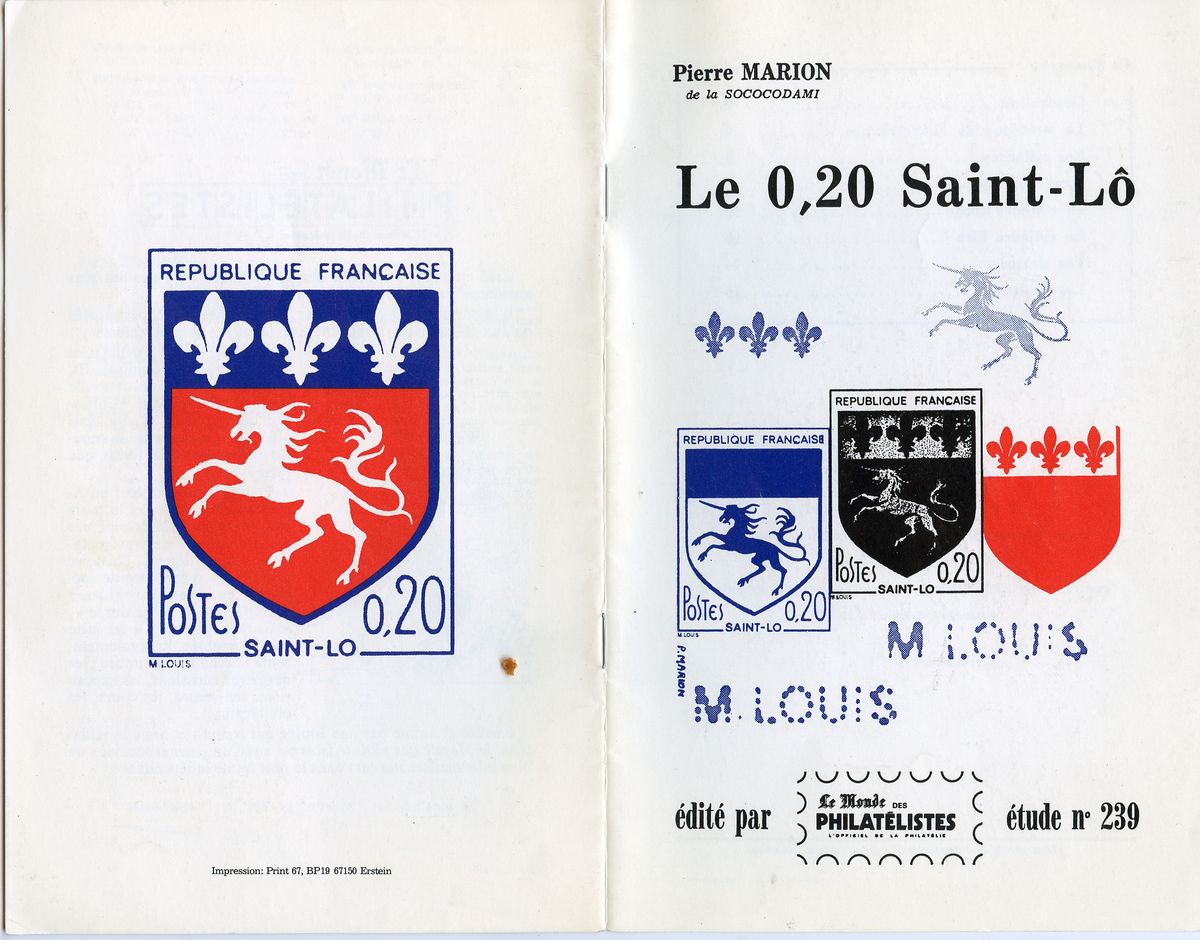
Apart from overprints with phosphor bars the main distinction made by French collectors lies in the details of the name of the designer: Mireille Louis. Nice looking or not!
Re: France 1966 Coat of arms Saint-Lô
Publicado: 25 Sep 2017 11:14
por Rein
The first printings made between 1966 and 1968 were done with photogravure cylinders prepared by the "private industry" as they say instead of made/prepared by the Printing House itself in Paris.
The printing house at Boulevard Brune in Paris had just started printing in photogravure on the HEL-1 press made by Chambon,.
What makes this stamp so important is that - not yet assured but ... this could have been the first stamps printed by cylinders made in EME! Elecro-Mechanical Engraving years before the Belgian stamps printed in 1982!
The French have not yet started to study this stamp again so we need material - with margins - in orde to check whether EME was in use or still the traditional etched cylinders!

Re: France 1966 Coat of arms Saint-Lô
Publicado: 25 Sep 2017 11:26
por Rein
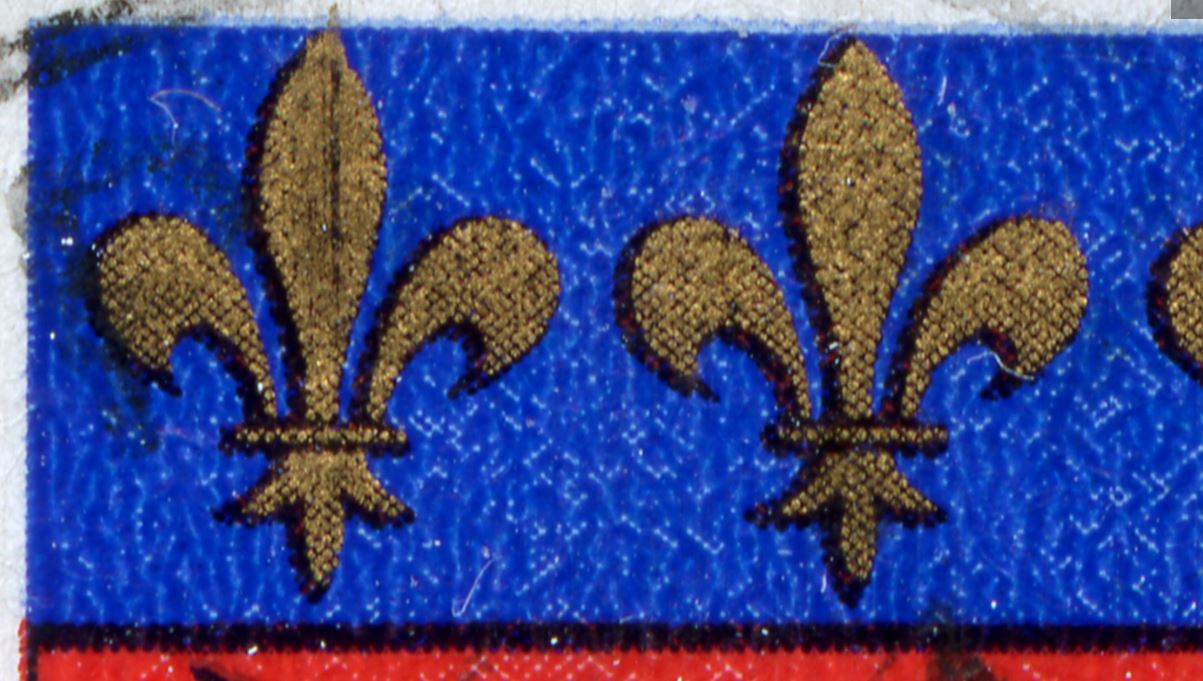
Both blue and gold have rhombic screen dots under angle of 40 degrees! Just as we see after the introduction of EME in 1982!
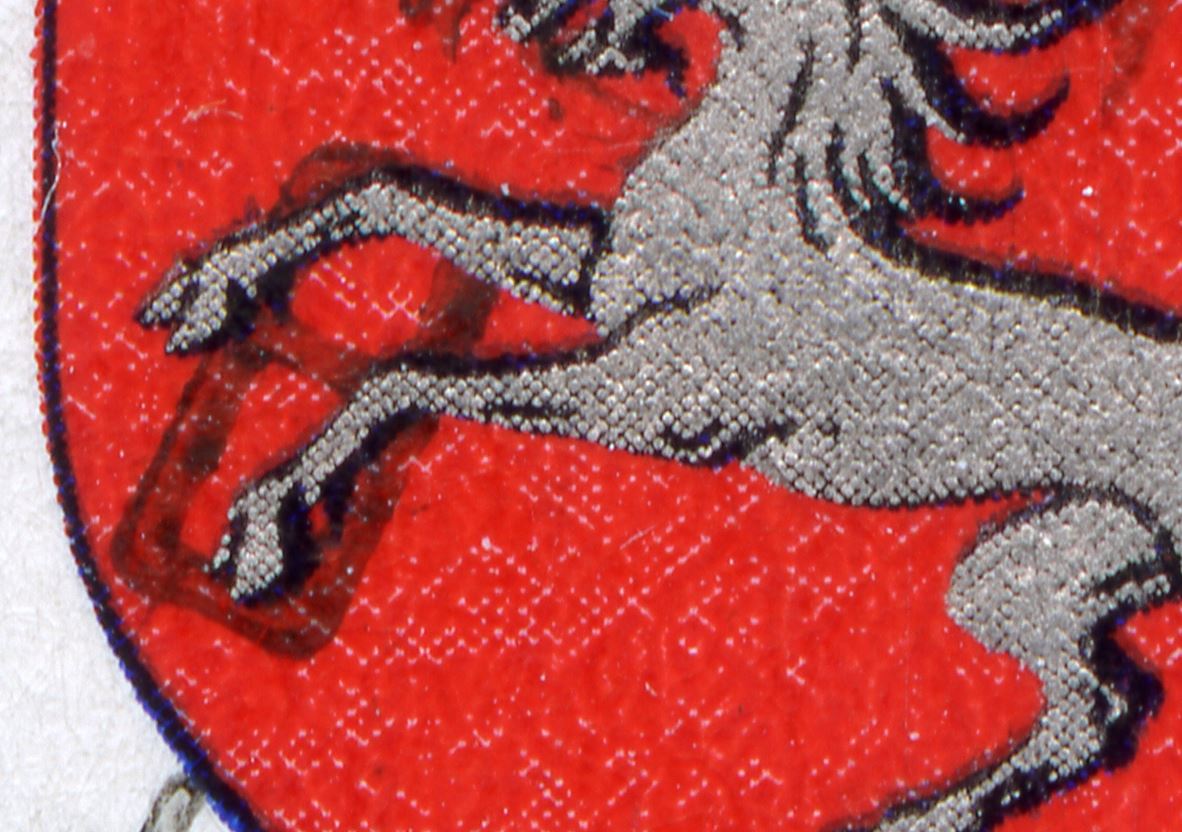
Red and silver also have rhombic screens at the same angle!
It this the first printing????
The cancellation does NOT support this!

Re: France 1966 Coat of arms Saint-Lô
Publicado: 25 Sep 2017 11:36
por Rein
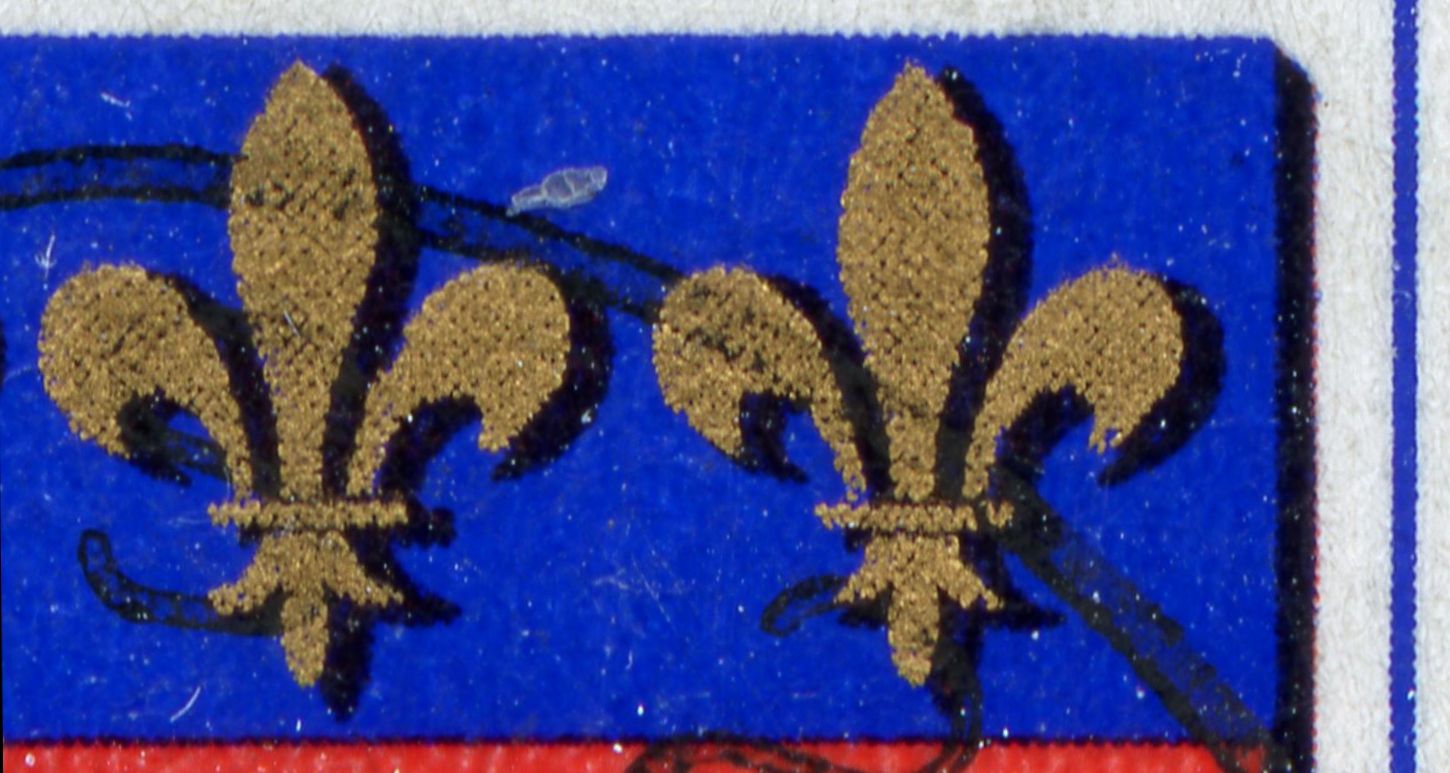
What has changed [?] is that gold has a traditional cross-raster; blue unchanged...
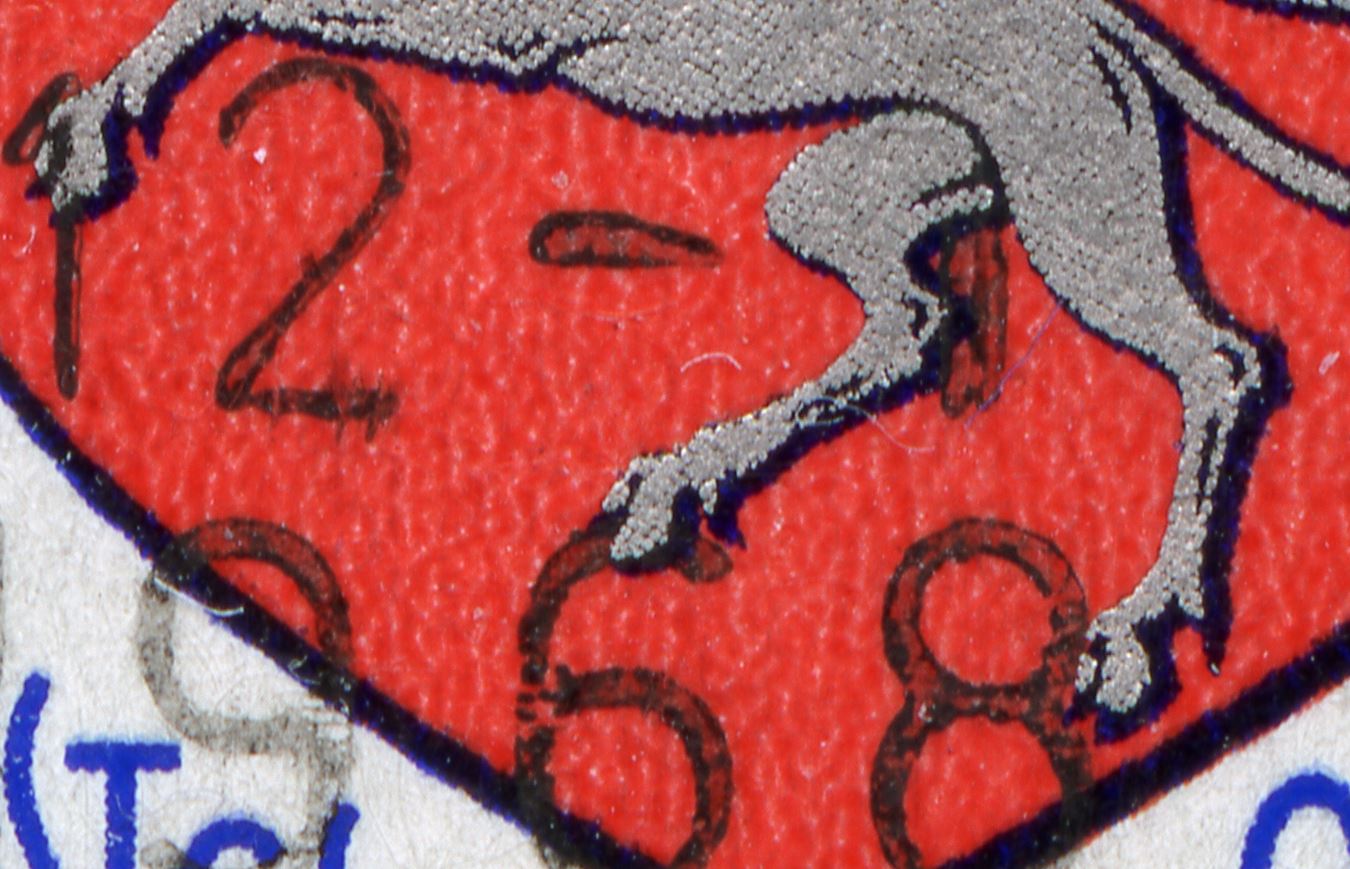
Red does not really show its screen, but silver is rhombic with an asymmetry : +50 and -30 degrees!
Re: France 1966 Coat of arms Saint-Lô
Publicado: 25 Sep 2017 11:48
por Rein
With 3 phosphor bands:
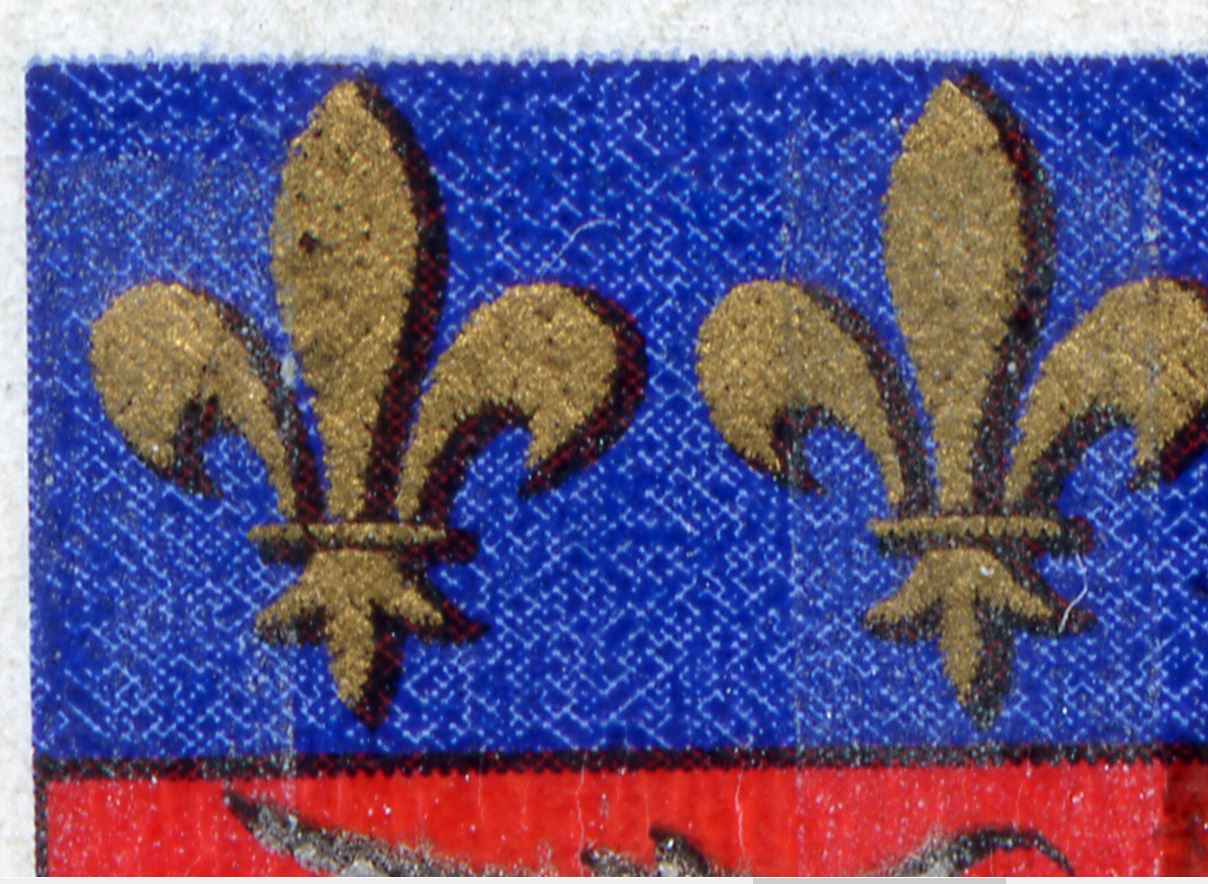
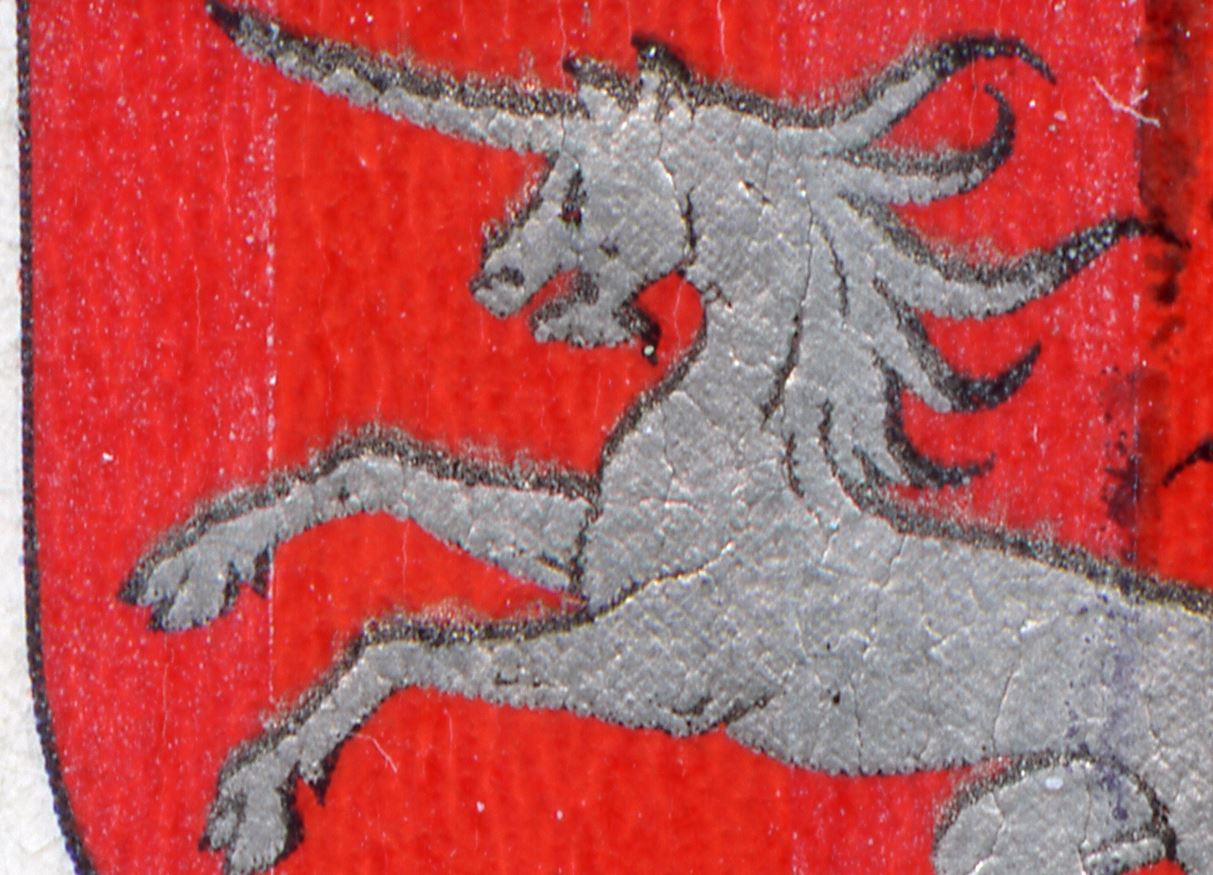
All 4 colours with screen angles of 40 degrees!
Re: France 1966 Coat of arms Saint-Lô
Publicado: 25 Sep 2017 12:09
por Rein
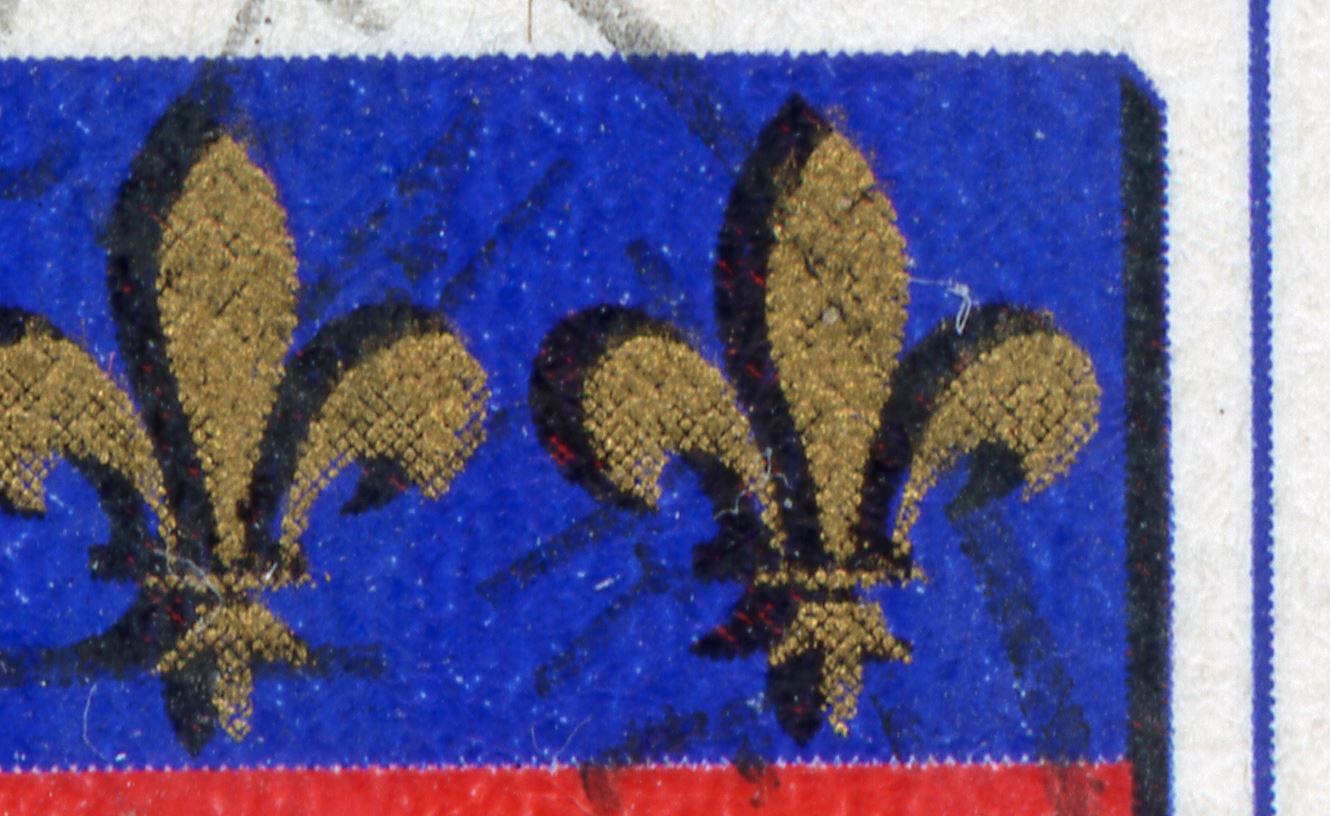
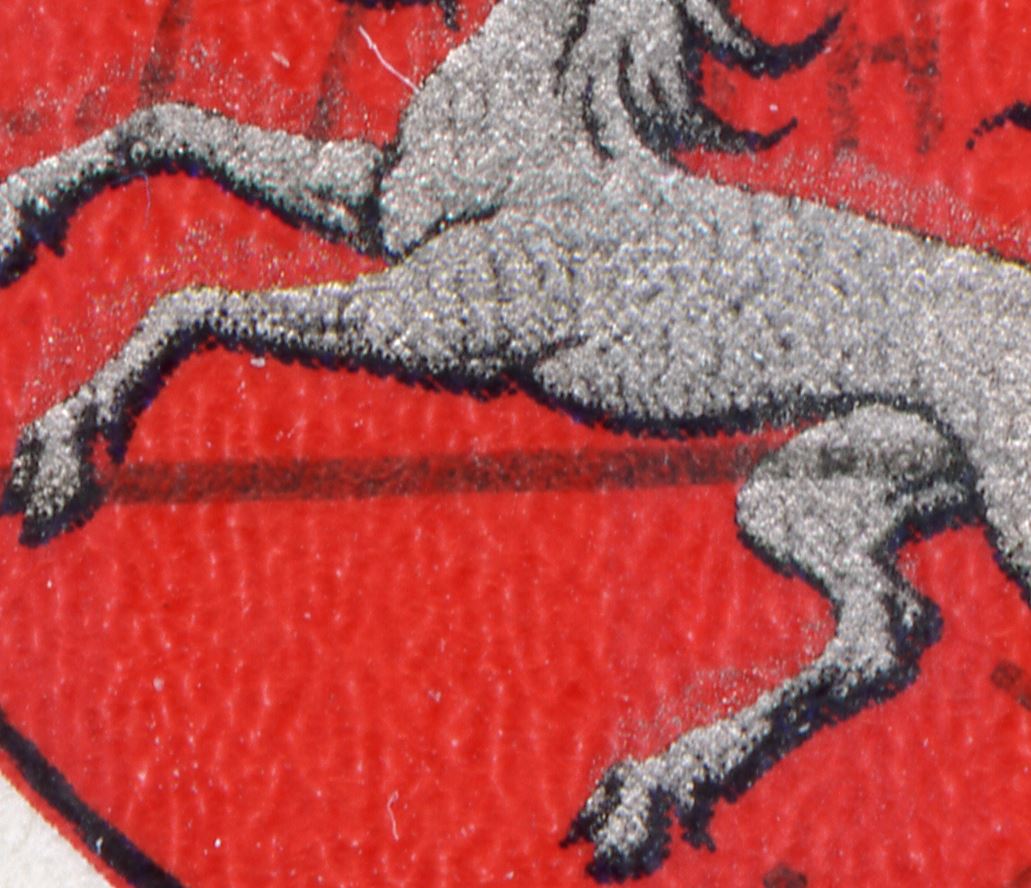
Blue and red still rhombic with an angle of 40 degrees, gold and silver 45 ...
Re: France 1966 Coat of arms Saint-Lô
Publicado: 25 Sep 2017 12:11
por Rein
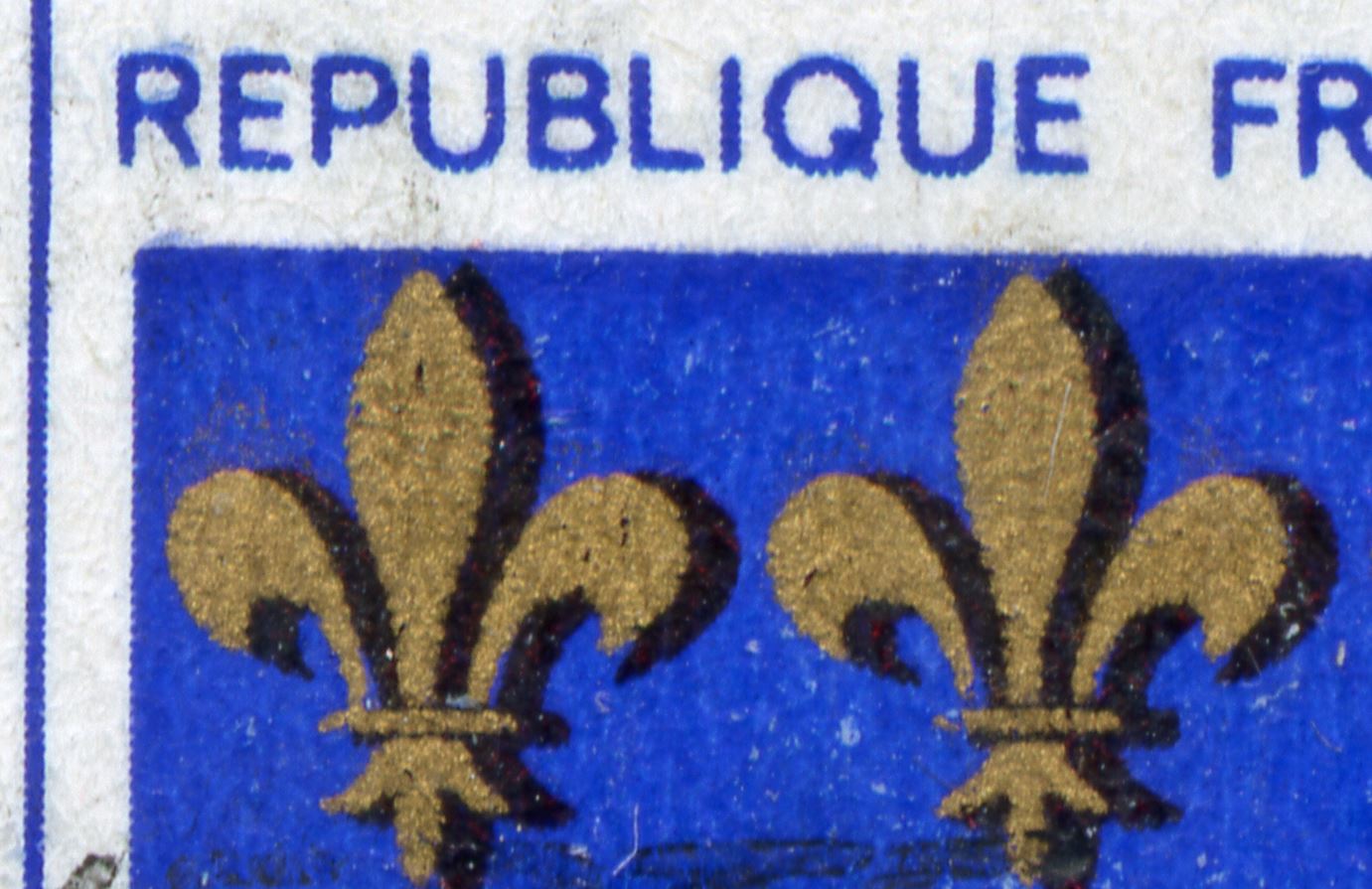
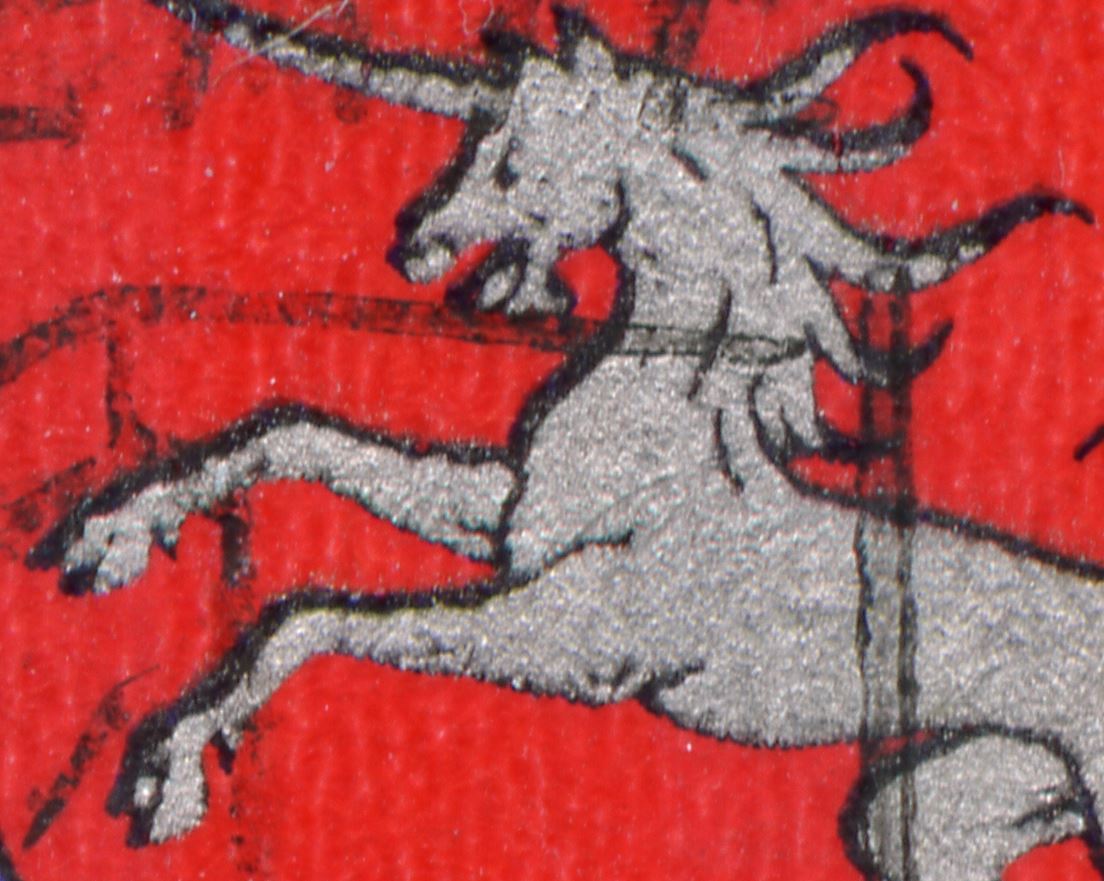
All cylinders with a cross screen! Blue with a fine screen of 125 lines/cm....
Probably this is type II with cylinders prepared by Périgueux themselves.
Re: France 1966 Coat of arms Saint-Lô
Publicado: 29 Sep 2017 17:35
por Rein
Rein escribió:
What has changed [?] is that gold has a traditional cross-raster; blue unchanged...

Red does not really show its screen, but silver is rhombic with an asymmetry : +50 and -30 degrees!
This is the first printing or at least in the first group of printings between 30.11.1966 and 1968.
I will show a counter sheet this weekend that had been printed on 01.12.1966 ..... Pretty early indeed!
Re: France 1966 Coat of arms Saint-Lô
Publicado: 02 Oct 2017 14:36
por Rein
The aim of Pierre Marion's leaflet is to show - using blocks of 4 of dated corners - all the different blue cylinders and by using the red register bar on the right hand margin to show the different red cylinders.
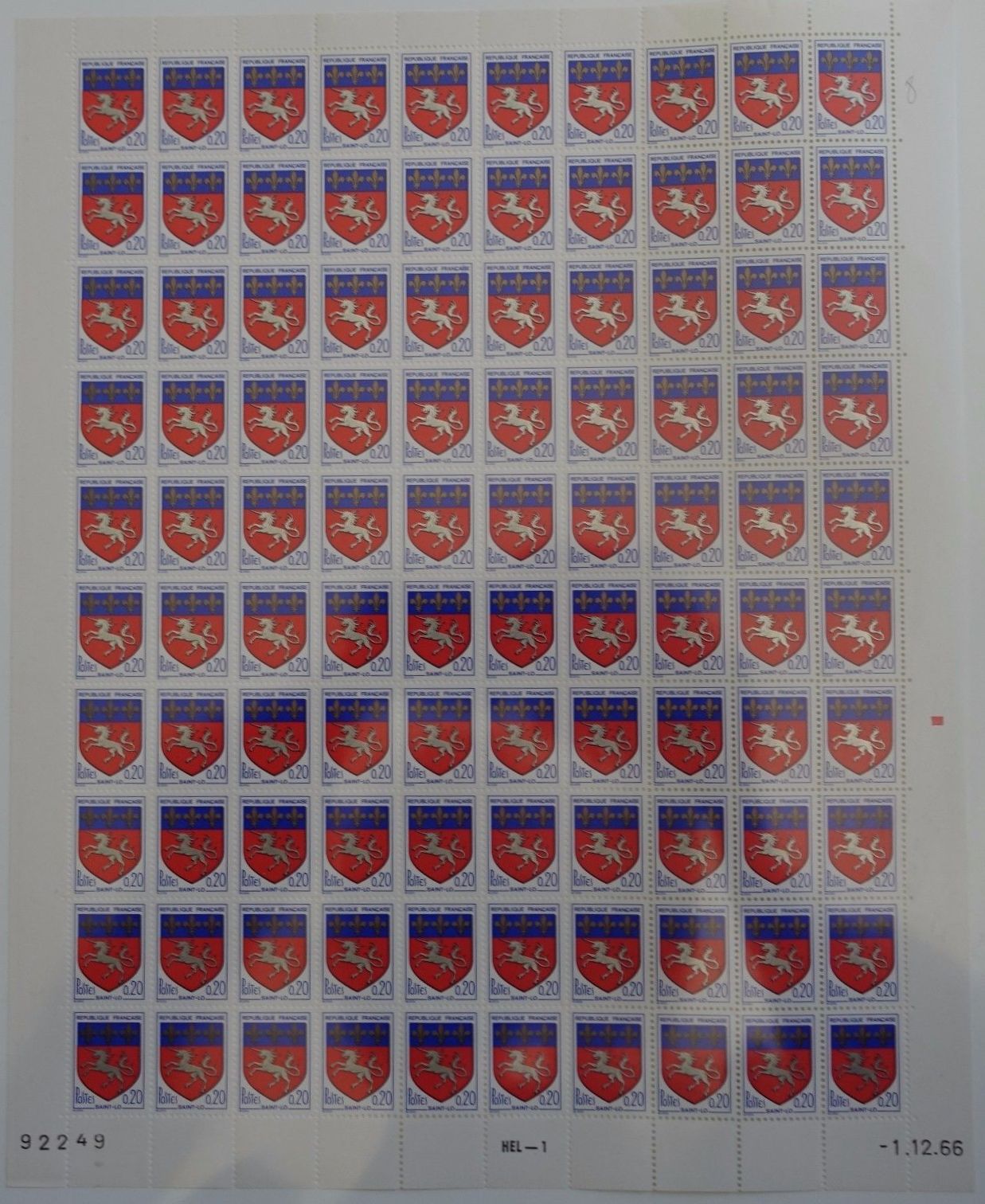
Re: France 1966 Coat of arms Saint-Lô
Publicado: 02 Oct 2017 14:42
por Edu-pelado
Rein, very interesting study.
Re: France 1966 Coat of arms Saint-Lô
Publicado: 03 Oct 2017 07:08
por Rein
The 0.20 stamp was printed in Paris by the "Imprimerie de Timbres-Poste" during the years 1966-1968, and after the transfer of that printing house to Périgueux, during the years 1970-78.
Printed on a reel-fed photogravure printing press of Chambon, the first to be used by this printer deboted by the collectors HEL-1, to be followed in 1971 by the HEL-2.
The stamp was printed on 1-sided coated paper that reacts "white" under UV due to the optical brightening agents both in the coating as well as in the paper pulp. At the back gum arabic with gum-breaking diagonals.
Comb-perforated 13.
The direction of printing is U[pwards] at times very clearly due to excessive inking.
Re: France 1966 Coat of arms Saint-Lô
Publicado: 03 Oct 2017 07:09
por Rein
What drew my attention to this stamp in the first place was the arrangement of the screen dots in a rhombic setting.
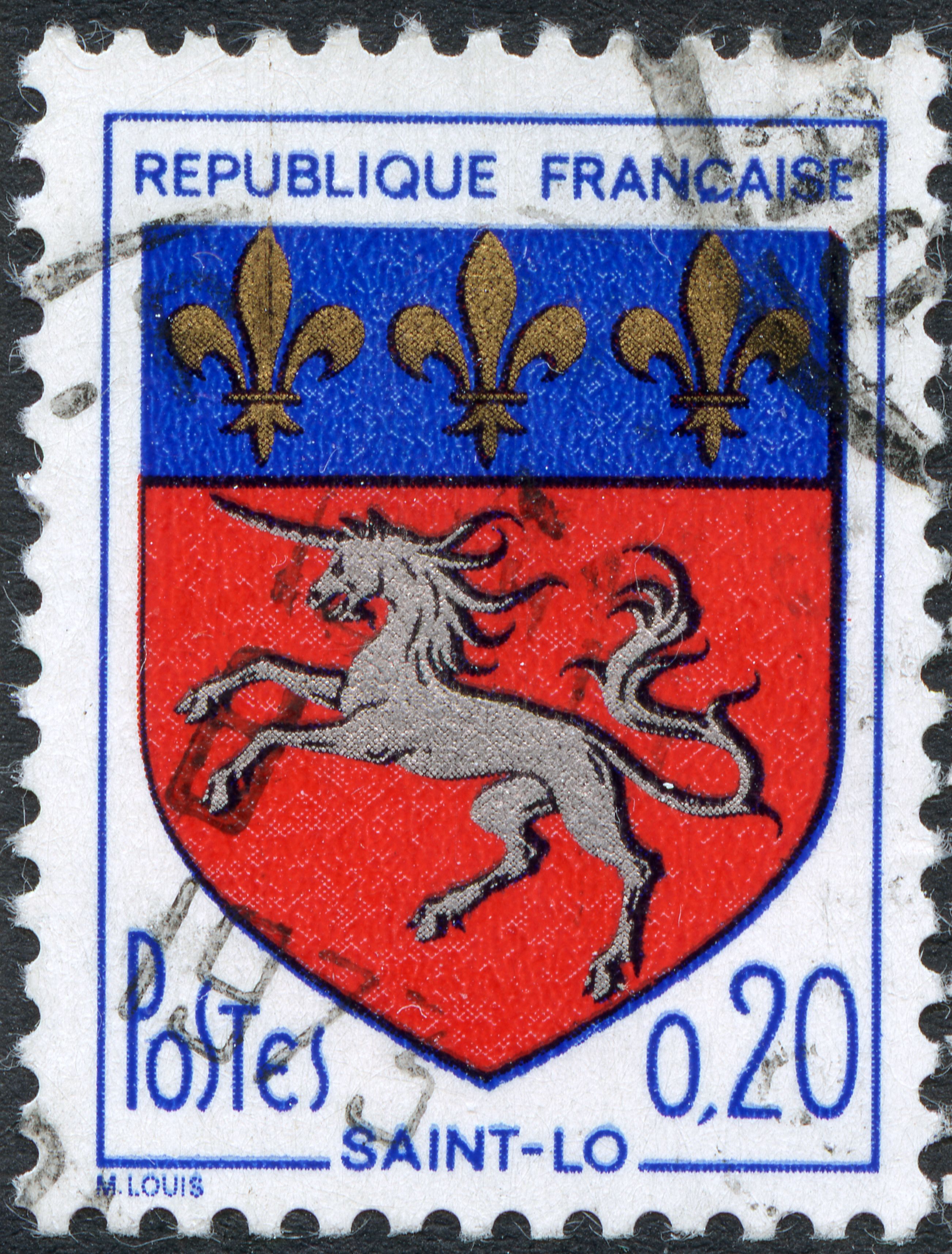
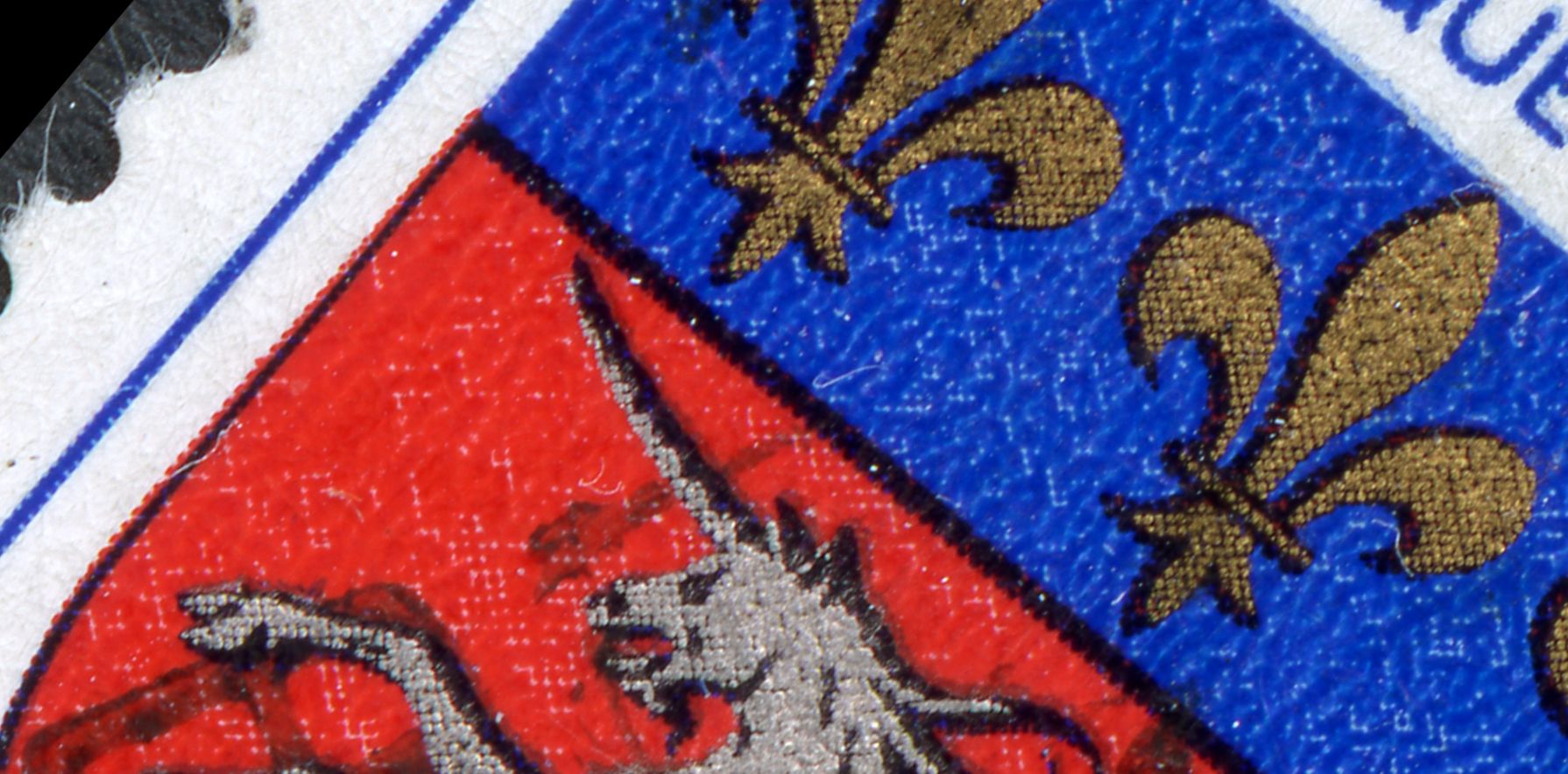
And this goes for all 4 colours in this particular printing!
Re: France 1966 Coat of arms Saint-Lô
Publicado: 03 Oct 2017 07:11
por Rein
The French philatelists refer to the history of this stamp in terms of 3 periods:
- 1966-1968 cylinders prepared by the "industrie privée"
break due to the transfer
- 1970-1972 idem
- 1973-1978 cylinder prepared in Périgueux in the printing house itself
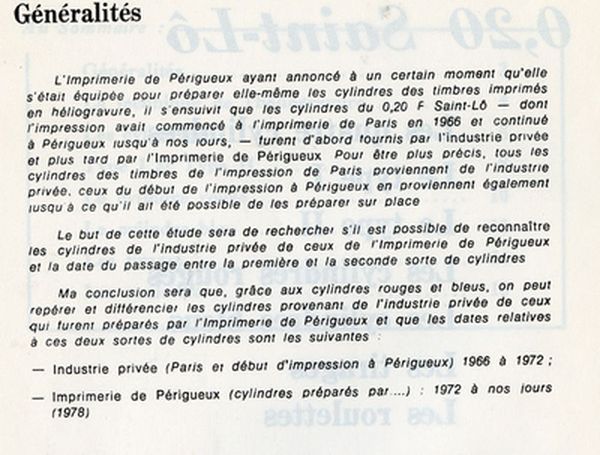
Re: France 1966 Coat of arms Saint-Lô
Publicado: 03 Oct 2017 07:12
por Rein
The rhombic structure reminds me of the first Belgian computer steered engraving for the King Baldwin definitives. The printing house in Mechelen/Malines claims to have printed the first ever EME [electro-mechanical engraving used for] postage stamps in 1982.
Is this claim right????
I started to doubt!
Maybe the French were first using cylinders prepared by the private industry???
Bear in mind that the Hell Helio-Klischograph was introduced in 1962....
Re: France 1966 Coat of arms Saint-Lô
Publicado: 03 Oct 2017 07:12
por Rein
In the preparation of any photogravure cylinder so far, a glass/film with a pre-engraved screen had been used. Transposing this over a film containing all stamps images - multi-positive - onto the carbon tissue,etc.... would lead to individual stamps having difference in the arrrangment of screen dots! No stamp is exactly the same...
In this French stamp ALL individual stamps out of the 100=10x10 have the SAME arrangment of dots!
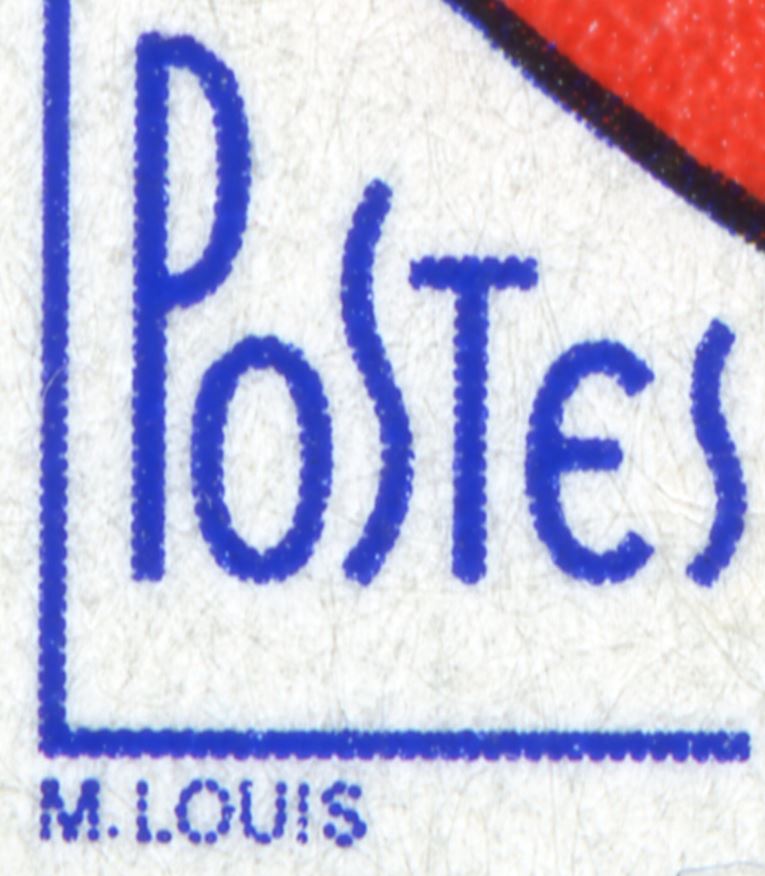
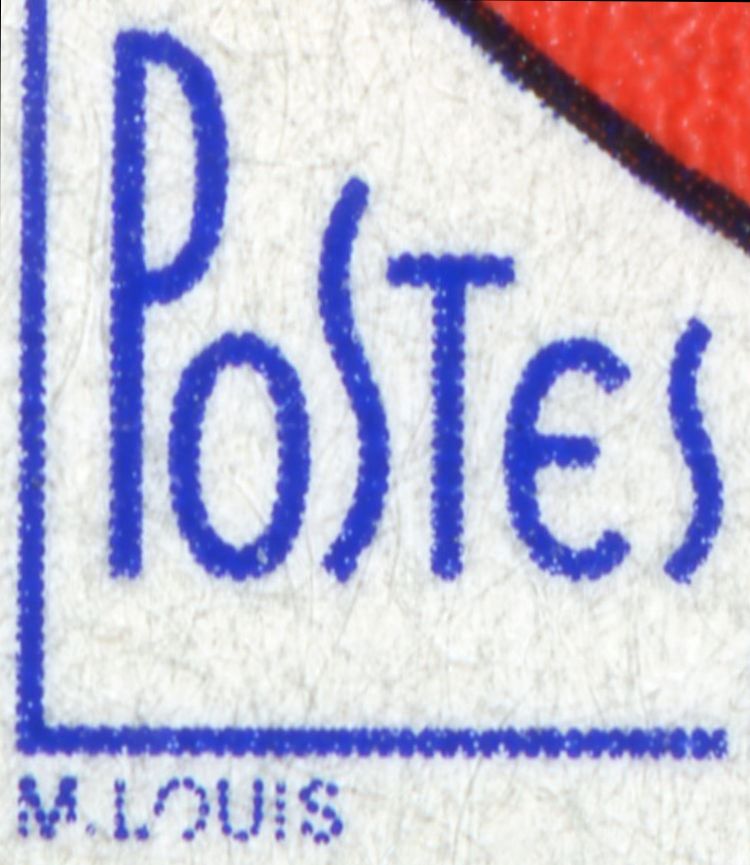
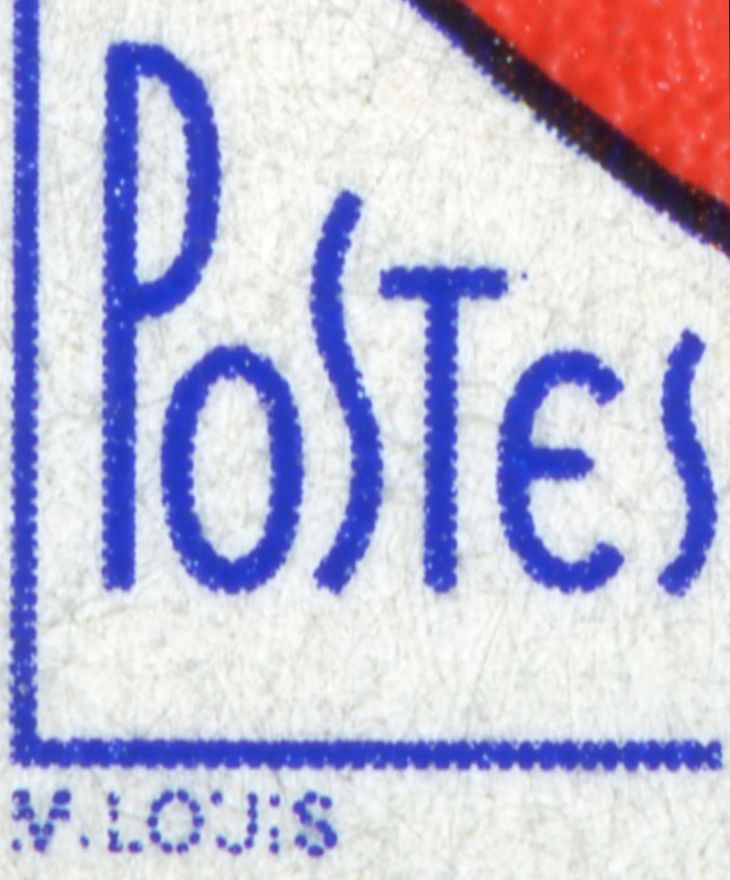
The only exceptions are some dots that have "fallen out" as in the name of the designer Mireille Louis OR in a few extra dots that do not seem to be part of the design such as the dot right behind the top of the "T".



















